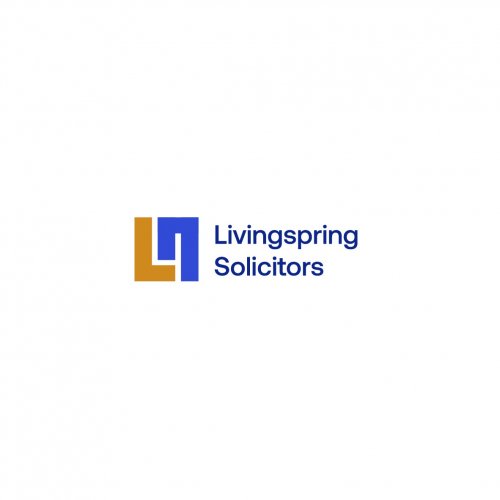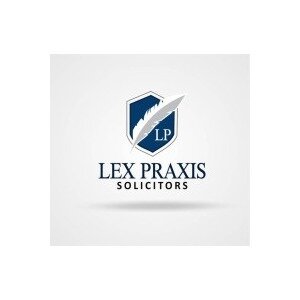Best Corporate Governance Lawyers in Calabar
Share your needs with us, get contacted by law firms.
Free. Takes 2 min.
List of the best lawyers in Calabar, Nigeria
About Corporate Governance Law in Calabar, Nigeria
Corporate governance refers to the structures, processes, and practices through which companies are directed and controlled. In Calabar, Nigeria, corporate governance is guided by a combination of local, national, and international best practices to ensure transparency, accountability, and fairness in company management. The goal is to protect the interests of shareholders and other stakeholders, reduce the risk of corporate scandals, and foster business integrity and economic growth.
Why You May Need a Lawyer
Engaging a lawyer for corporate governance matters in Calabar can be crucial in various scenarios, including:
- Drafting and reviewing company policies or corporate bylaws
- Ensuring compliance with the Companies and Allied Matters Act (CAMA) and regulatory requirements
- Resolving disputes among shareholders, directors, or Board members
- Handling whistleblowing or compliance investigations
- Advising on board composition, director duties, and executive compensation
- Assisting in mergers, acquisitions, or restructuring processes
- Addressing breaches of fiduciary duty or unethical business conduct
- Managing shareholder meetings and advising on best corporate practices
Early legal intervention can help prevent costly mistakes and protect your business interests.
Local Laws Overview
Key laws governing corporate governance in Calabar, Nigeria, include:
- Companies and Allied Matters Act (CAMA) 2020 - The cornerstone statute for establishing, running, and regulating companies in Nigeria, including requirements for company registration, disclosure, board structure, responsibilities of directors, and shareholder rights.
- Nigerian Code of Corporate Governance (NCCG) 2018 - Provides guidelines on ethical conduct, risk management, accountability, and effective leadership for private and public companies.
- Securities and Exchange Commission (SEC) Regulations - Applies to publicly listed companies regarding investor protection and capital market activities.
- Financial Reporting Council of Nigeria (FRCN) guidelines - Sets national standards for financial transparency, risk management, and compliance.
- Sector-specific regulations for industries such as banking and insurance also influence governance structures.
Calabar-based companies must adhere to these laws to mitigate legal risks and promote stakeholder confidence.
Frequently Asked Questions
What is corporate governance and why is it important in Calabar?
Corporate governance refers to policies and processes that ensure a company is run ethically, transparently, and in compliance with the law. In Calabar, strong governance builds trust, attracts investment, and helps companies avoid legal pitfalls.
Who regulates corporate governance in Calabar, Nigeria?
The Corporate Affairs Commission (CAC) oversees company registration and compliance, while the Securities and Exchange Commission (SEC) and the Financial Reporting Council of Nigeria (FRCN) provide additional regulation and oversight, especially for listed companies.
What are the main duties of company directors?
Directors owe fiduciary duties to act in the best interests of the company, exercise due care and diligence, avoid conflicts of interest, maintain confidentiality, and ensure proper financial reporting and compliance with legal obligations.
How can companies in Calabar ensure compliance with CAMA and other codes?
Companies should regularly review their policies, provide management and board training, conduct internal audits, and seek legal counsel to stay abreast of regulatory changes.
What happens if a company breaches corporate governance regulations?
Consequences may include fines, legal sanctions, director disqualification, damages to reputation, and even criminal liability in cases of serious misconduct.
Can minority shareholders protect their interests?
Yes, minority shareholders have rights under CAMA, including access to certain company information, the right to call meetings, and legal remedies if they suffer unfair prejudice.
Are there special requirements for Board composition in Nigeria?
NCCG encourages diversity, independence, and a mix of skills. At least one-third of the Board should be non-executive directors, with an independent director mandatory for publicly listed firms.
How should conflicts of interest be managed?
Directors and officers must declare personal interests in company dealings and recuse themselves from related decision-making to maintain transparency and objectivity.
What is the process for holding valid board and shareholder meetings?
Meetings should be properly convened by issuing notices, maintaining quorum, preparing clear agendas, and keeping accurate minutes as required under CAMA and the company's articles.
Where can I report unethical practices in a company?
Concerns can be raised internally through a company's whistleblower mechanism or reported to regulatory bodies such as the SEC, FRCN, or the CAC for investigation and enforcement.
Additional Resources
If you need further information or assistance, the following resources can be helpful:
- Corporate Affairs Commission (CAC)
- Securities and Exchange Commission (SEC) Nigeria
- Financial Reporting Council of Nigeria (FRCN)
- Nigerian Bar Association (Calabar Branch)
- Chamber of Commerce, Industry, Mines and Agriculture Calabar
- Professional law firms specializing in corporate and commercial law in Calabar
- Business support organizations and regulatory compliance consultants
Next Steps
If you believe you need legal assistance with a corporate governance matter in Calabar, consider the following steps:
- Identify the specific corporate governance issue you face
- Gather all relevant documents and correspondence
- Consult a lawyer or legal professional specialized in corporate law in Calabar
- Prepare a list of questions and desired outcomes for your consultation
- Follow up on legal advice and ensure timely compliance with any recommendations or regulatory requirements
Early professional advice is key to resolving corporate governance issues efficiently and protecting your company’s interests.
Lawzana helps you find the best lawyers and law firms in Calabar through a curated and pre-screened list of qualified legal professionals. Our platform offers rankings and detailed profiles of attorneys and law firms, allowing you to compare based on practice areas, including Corporate Governance, experience, and client feedback.
Each profile includes a description of the firm's areas of practice, client reviews, team members and partners, year of establishment, spoken languages, office locations, contact information, social media presence, and any published articles or resources. Most firms on our platform speak English and are experienced in both local and international legal matters.
Get a quote from top-rated law firms in Calabar, Nigeria — quickly, securely, and without unnecessary hassle.
Disclaimer:
The information provided on this page is for general informational purposes only and does not constitute legal advice. While we strive to ensure the accuracy and relevance of the content, legal information may change over time, and interpretations of the law can vary. You should always consult with a qualified legal professional for advice specific to your situation.
We disclaim all liability for actions taken or not taken based on the content of this page. If you believe any information is incorrect or outdated, please contact us, and we will review and update it where appropriate.











